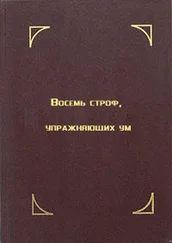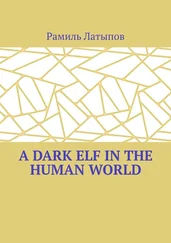There are two primary tasks facing religious practitioners who are concerned with world peace. First, we must promote better interfaith understanding so as to create a workable degree of unity among all religions. This may be achieved in part by respecting each other's beliefs and by emphasizing our common concern for human well-being. Second, we must bring about a viable consensus on basic spiritual values that touch every human heart and enhance general human happiness. This means we must emphasize the common denominator of all world religions – humanitarian ideals. These two steps will enable us to act both individually and together to create the necessary spiritual conditions for world peace.
We practitioners of different faiths can work together for world peace when we view different religions as essentially instruments to develop a good heart – love and respect for others, a true sense of community. The most important thing is to look at the purpose of religion and not at the details of theology or metaphysics, which can lead to mere intellectualism. I believe that all the major religions of the world can contribute to world peace and work together for the benefit of humanity if we put aside subtle metaphysical differences, which are really the internal business of each religion.
Despite the progressive secularization brought about by worldwide modernization and despite systematic attempts in some parts of the world to destroy spiritual values, the vast majority of humanity continues to believe in one religion or another. The undying faith in religion, evident even under irreligious political systems, clearly demonstrates the potency of religion as such. This spiritual energy and power can be purposefully used to bring about the spiritual conditions necessary for world peace. Religious leaders and humanitarians all over the world have a special role to play in this respect.
Whether we will be able to achieve world peace or not, we have no choice but to work towards that goal. If our minds are dominated by anger, we will lose the best part of human intelligence – wisdom, the ability to decide between right and wrong. Anger is one of the most serious problems facing the world today.
Individual Power to Shape Institutions
Anger plays no small role in current conflicts such as those in the Middle East, Southeast Asia, the North– South problem, and so forth. These conflicts arise from a failure to understand one another's humanness. The answer is not the development and use of greater military force, nor an arms race. Nor is it purely political or purely technological. Basically it is spiritual, in the sense that what is required is a sensitive understanding of our common human situation. Hatred and fighting cannot bring happiness to anyone, even to the winners of battles. Violence always produces misery and thus is essentially counter-productive. It is, therefore, time for world leaders to learn to transcend the differences of race, culture, and ideology and to regard one another through eyes that see the common human situation. To do so would benefit individuals, communities, nations, and the world at large.
The greater part of present world tension seems to stem from the 'Eastern bloc' versus 'Western bloc' conflict that has been going on since World War II. These two blocs tend to describe and view each other in a totally unfavourable light. This continuing, unreasonable struggle is due to a lack of mutual affection and respect for each other as fellow human beings. Those of the Eastern bloc should reduce their hatred towards the Western bloc because the Western bloc is also made up of human beings – men, women, and children. Similarly those of the Western bloc should reduce their hatred towards the Eastern bloc because the Eastern bloc is also human beings. In such a reduction of mutual hatred, the leaders of both blocs have a powerful role to play But first and foremost, leaders must realize their own and others' humanness. Without this basic realization, very little effective reduction of organized hatred can be achieved.
If, for example, the leader of the United States of America and the leader of the Union of Soviet Socialist Republics suddenly met each other in the middle of a desolate island, I am sure they would respond to each other spontaneously as fellow human beings. But a wall of mutual suspicion and misunderstanding separates them the moment they are identified as the 'President of the USA' and the 'Secretary-General of the USSR.' More human contact in the form of informal extended meetings, without any agenda, would improve their mutual understanding; they would learn to relate to each other as human beings and could then try to tackle international problems based on this understanding. No two parties, especially those with a history of antagonism, can negotiate fruitfully in an atmosphere of mutual suspicion and hatred.
I suggest that world leaders meet about once a year in a beautiful place without any business, just to get to know each other as human beings. Then, later, they could meet to discuss mutual and global problems. I am sure many others share my wish that world leaders meet at the conference table in such an atmosphere of mutual respect and understanding of each other's humanness.
To improve person-to-person contact in the world at large, I would like to see greater encouragement of international tourism. Also, mass media, particularly in democratic societies, can make a considerable contribution to world peace by giving greater coverage to human interest items that reflect the ultimate oneness of humanity. With the rise of a few big powers in the international arena, the humanitarian role of international organizations is being bypassed and neglected. I hope that this will be corrected and that all international organizations, especially the United Nations, will be more active and effective in ensuring maximum benefit to humanity and promoting international understanding. It will indeed be tragic if the few powerful members continue to misuse world bodies like the UN for their one-sided interests. The UN must become the instrument of world peace. This world body must be respected by all, for the UN is the only source of hope for small oppressed nations and hence for the planet as a whole.
As all nations are economically dependent upon one another more than ever before, human understanding must go beyond national boundaries and embrace the international community at large. Indeed, unless we can create an atmosphere of genuine cooperation, gained not by threatened or actual use of force but by heartfelt understanding, world problems will only increase. If people in poorer countries are denied the happiness they desire and deserve, they will naturally be dissatisfied and pose problems for the rich. If unwanted social, political, and cultural forms continue to be imposed upon unwilling people, the attainment of world peace is doubtful. However, if we satisfy people at a heart-to-heart level, peace will surely come.
Within each nation, the individual ought to be given the right to happiness, and among nations, there must be equal concern for the welfare of even the smallest nations. I am not suggesting that one system is better than another and all should adopt it. On the contrary, a variety of political systems and ideologies is desirable and accords with the variety of dispositions within the human community. This variety enhances the ceaseless human quest for happiness. Thus each community should be free to evolve its own political and socioeconomic system, based on the principle of self-determination .
The achievement of justice, harmony, and peace depends on many factors. We should think about them in terms of human benefit in the long run rather than the short term. I realize the enormity of the task before us, but I see no other alternative than the one I am proposing – which is based on our common humanity. Nations have no choice but to be concerned about the welfare of others, not so much because of their belief in humanity, but because it is in the mutual and long-term interest of all concerned. An appreciation of this new reality is indicated by the emergence of regional or continental economic organizations such as the European Economic Community, the Association of South East Asian Nations, and so forth. I hope more such trans-national organizations will be formed, particularly in regions where economic development and regional stability seem in short supply.
Читать дальше







